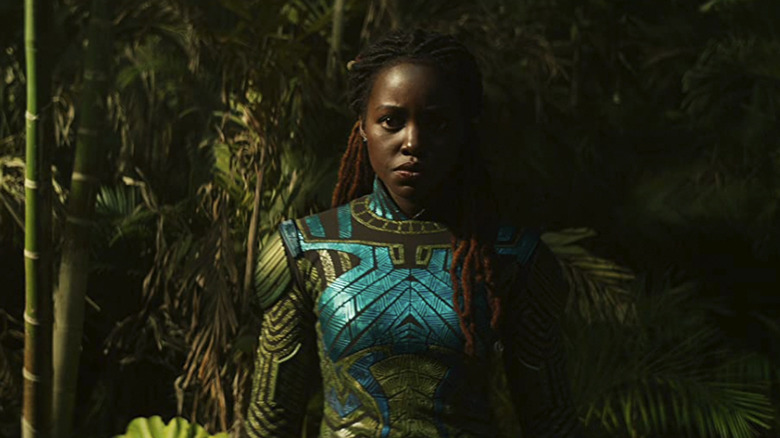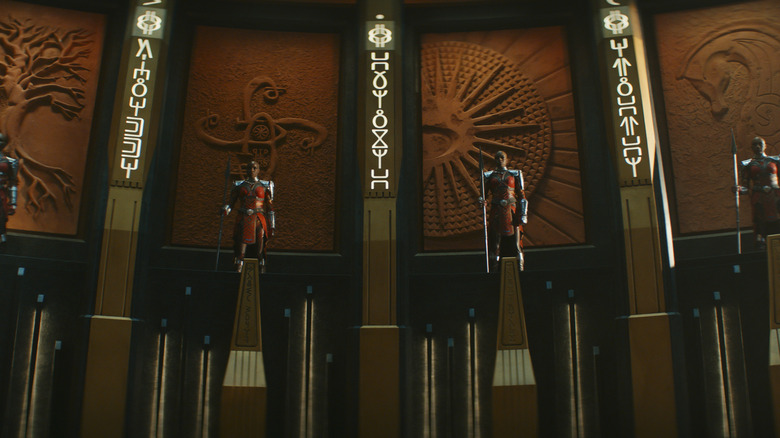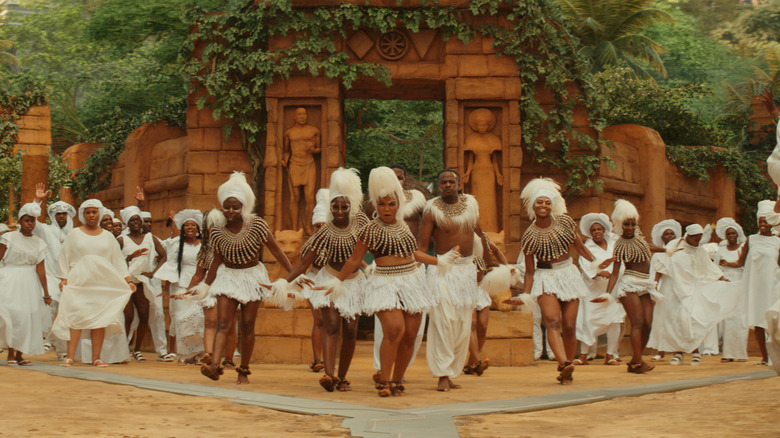Ryan Coogler Wanted Black Panther: Wakanda Forever To Feel Like A '90s Blockbuster [Exclusive]
Critics have already hailed "Black Panther: Wakanda Forever" as a movie that's both epic in scope and intensely personal. That balance is something writer-director Ryan Coogler strove to achieve while making the film — though for him and co-writer Joe Robert Cole, one side of that scale always came first.
"You try to start with the personal," Coogler told me during my interview with him for /Film. "It's the only way I know how to work."
That doesn't mean, however, that the interior lives of the characters were Coogler's only consideration. "At the same time, we kept in mind that we wanted to deliver on the scope and the scale," he added. "We wanted the audience to feel like they were watching a heart-stopping action movie as well as a film that reckons with how loss can alter you."
Coogler looked to other action movies that were "big and intimate at the same time" for inspiration. And a lot of those movies came from a specific decade where blazers were baggy, neon colors were hot, and roller blades were all the rage.
'By '90s movie, I mean specifically like '90s Cameron and '90s Spielberg'
"I would often talk about wanting this movie to feel like a '90s movie," Coogler said before expanding on what specific '90s movies he turned to:
"By '90s movie, I mean specifically like '90s Cameron and '90s Spielberg, in terms of these big scope-y action pieces. I'll even put 'Malcolm X' in there and 'Contact' in there ... your 'Jurassic Parks' and your 'Terminator 2s.' 'Terminator 2' is a movie about a surrogate father. It's a movie about regret and paranoia. But at the same time, when you think about that movie, I think about how I felt in some of those chase scenes. But I also think of how I felt when Arnold Schwarzenegger's character goes into that hot lava and you're heartbroken."
Coogler also added that "Aliens" and "The Abyss" were additional inspirations. "They feel tactile," he explained. "The movie feels earnest — it's taking itself serious, and there's deep, deep, deep philosophical and interpersonal relationship things happening in these movies."
"Wakanda Forever" also has most of its characters face big changes in their lives, something that Coogler knew would be part of the story from the get-go. "Even before we lost [Chadwick Boseman], this movie was always going to be a movie where the characters went through transformations — a movie where the characters would lose things that defined them and have to figure out a way to pick up the pieces and move forward," he said.
'I'd say, 'Big movie, big movie''
I've seen the movie, and without getting into spoilers, I can say that Coogler pulls off more than a few impressive chase scenes, epic battles, and larger-than-life moments. Those sequences were something Coogler put an extra focus on during filming.
"I'd even say it on set sometimes. I'd say, 'Big movie, big movie,' just to remind everybody there's opportunity," he said. "We have something that if we do it right, people will want to see it. We were making movies during the pandemic, but it was like, 'Man, maybe people will be back in theaters when this thing happens, and people can go have a communal experience.'"
Those big moments, however, didn't diminish or take away from the film's recognition of the grief the characters (and actors) felt from Boseman's death. "Black Panther: Wakanda Forever" is a movie about grief, but it's also a movie full of joy and humor.
You can experience all of these aspects of the film when "Black Panther: Wakanda Forever" premieres in theaters on November 11, 2022. Keep an eye out for my full interview with Coogler as well, which will drop about a week after the movie's premiere because some of our conversation veered into spoiler territory.


